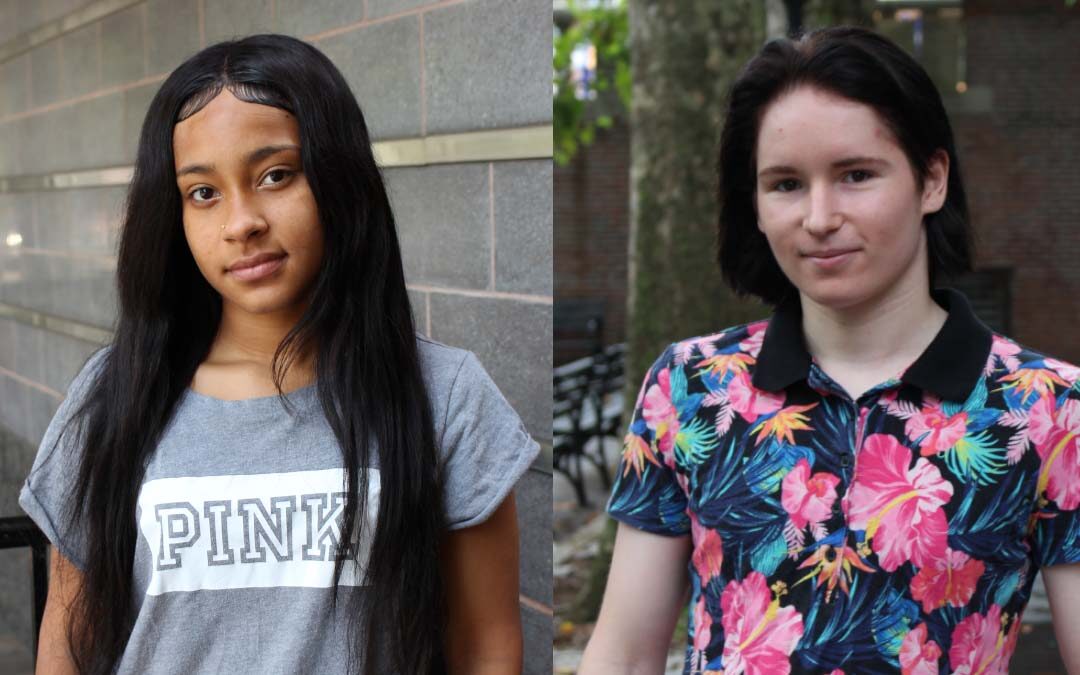“[This project] helped me with my growing, my team-leadership skills. It has definitely opened me up with feeling confident about making changes at my school.”
When City-As-School student Nicholas Cannon was first searching for a summer internship in 2020, he wanted an experience that was “more interactive,” and that “would really affect me and my experiences at school and other students’ experiences.” Fellow student Adreanna Cox, too, wanted to make a difference in her school’s culture after noticing that “a lot of kids don’t help each other … they just let each other fall behind.”
Both students seemed a perfect fit for a new internship Eskolta Senior School Design Partner Katie Gleason had begun to pilot. Many transfer school students hold internships that help them explore career paths, build skills, and—critically—earn money. When COVID-19 hit, in-person internships were paused and schools and community-based organizations were left scrambling to find virtual, meaningful internships for their students. As a result of the pandemic, New York City also canceled the Summer Youth Employment Program. Against this backdrop, Katie had begun to design a Youth Participatory Action Research (YPAR) project: a paid, student-led internship where students are trained to conduct research on a critical issue they see in their community and then use their findings to advocate for change. Students from three transfer schools—Liberation Diploma Plus, City-As-School, and Urban Dove Team Charter School—were encouraged to apply and thirteen were selected. Among those participants were Nicholas and Adreanna.
Both Nicholas and Adreanna focused on research questions aimed at improving the sense of community, interdependence, and collective support for peers at their school. Nicholas saw a need to “support student-staff connections and grow confidence in the student and with Nicholas Cannon, student, City-As-School Adreanna Cox, student, City-As-School 14 each other.” After conducting interviews with faculty and students, he created a plan to introduce longer-lasting student clubs to foster these relationships. Meanwhile, Adreanna investigated best practices to encourage student collaboration through focus groups. “There was a time in Spanish class [another student] didn’t understand what the teacher was saying so she asked me to explain it to her,” she says. “I want to see people interact more with each other … to open up to other people that are their same age.” Over the course of the project, Adreanna, Nick, and the eleven other participating students learned the fundamentals of action research: choosing a research question, creating a research plan, collecting data, analyzing findings, and reporting out.
It was not just research skills that students gained through the YPAR project—for Adreanna, she noted this project “helped me with my growing, my team-leadership skills.” Nicholas echoed these sentiments, adding that the project had helped build his sense of personal agency in shaping his educational experience: “It has definitely opened me up with feeling confident about making changes at my school.”
Finally, this summer internship project provided lessons for Eskolta as well. Looking ahead, program staff are planning ways to incorporate YPAR and other forms of student voice and participation into projects within the Eskolta Network so that the changes educators are designing are informed by, and co-created with, the students themselves.

